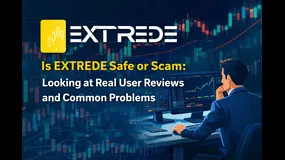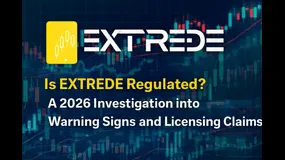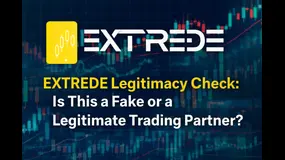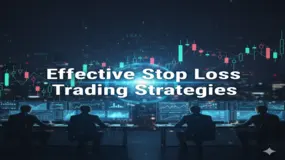Abstract:In the ever-shifting landscape of forex and cryptocurrency markets, collateral trading stands tall as a formidable strategy wielded by traders hungry for amplified returns, leveraging assets to ride the waves of market volatility; yet, beneath its promise of riches lies the lurking danger of leverage, a double-edged sword that demands caution and finesse.

In the ever-evolving landscape of the forex and cryptocurrency markets, collateral trading has emerged as a prominent strategy employed by traders seeking to maximize their potential returns. This practice involves utilizing collateral, such as margin or assets, to amplify trading positions and capitalize on market movements. While collateral trading offers the potential for significant gains, it also comes with inherent risks, particularly concerning leverage, which serves as a double-edged sword in the trading arena.
Leverage, a fundamental aspect of collateral trading, allows traders to control larger positions in the market with a relatively small amount of capital. For instance, a trader utilizing 10:1 leverage can control a position worth $10,000 with just $1,000 of collateral. This ability to magnify exposure can lead to substantial profits if the market moves in the trader's favour. However, it's crucial to recognize that leverage amplifies both gains and losses, making it a double-edged sword in trading.

One of the primary advantages of collateral trading is the potential for enhanced profitability. By leveraging their capital, traders can amplify their returns on successful trades, effectively multiplying their gains. This increased potential for profit is particularly appealing to traders seeking to capitalize on short-term market movements or exploit opportunities in volatile markets, such as those seen in the cryptocurrency space.
Furthermore, collateral trading allows traders to diversify their portfolios and access a broader range of trading opportunities. With leverage, traders can enter multiple positions simultaneously across different asset classes or markets, thereby spreading risk and potentially increasing overall returns. This diversification strategy can help mitigate the impact of adverse market movements on individual positions, reducing the overall risk exposure.
However, it's essential to approach collateral trading with caution, as leverage magnifies the impact of market fluctuations, increasing the risk of significant losses. While leverage can amplify profits on winning trades, it can also lead to substantial losses if the market moves against the trader. In extreme cases, excessive leverage can even result in the loss of the entire collateral, potentially wiping out the trader's account.
Moreover, traders must be mindful of the potential for margin calls when engaging in collateral trading. Margin calls occur when the value of the trader's positions falls below a certain threshold, requiring additional funds to be deposited to maintain the positions. Failure to meet margin requirements can result in the forced liquidation of positions, further exacerbating losses.
To mitigate the risks associated with collateral trading, traders should implement strict risk management practices. This includes setting appropriate stop-loss orders to limit potential losses on individual trades, as well as carefully managing leverage to avoid overexposure to the market. Additionally, traders should continually monitor market conditions and adjust their strategies accordingly to adapt to changing circumstances.
In conclusion, collateral trading offers traders the potential for enhanced profitability and diversification opportunities in the forex and cryptocurrency markets. However, it's essential to recognize that leverage is a double-edged sword, amplifying both gains and losses. By approaching collateral trading with caution and implementing robust risk management strategies, traders can navigate the challenges and capitalize on the opportunities presented by this trading approach.











